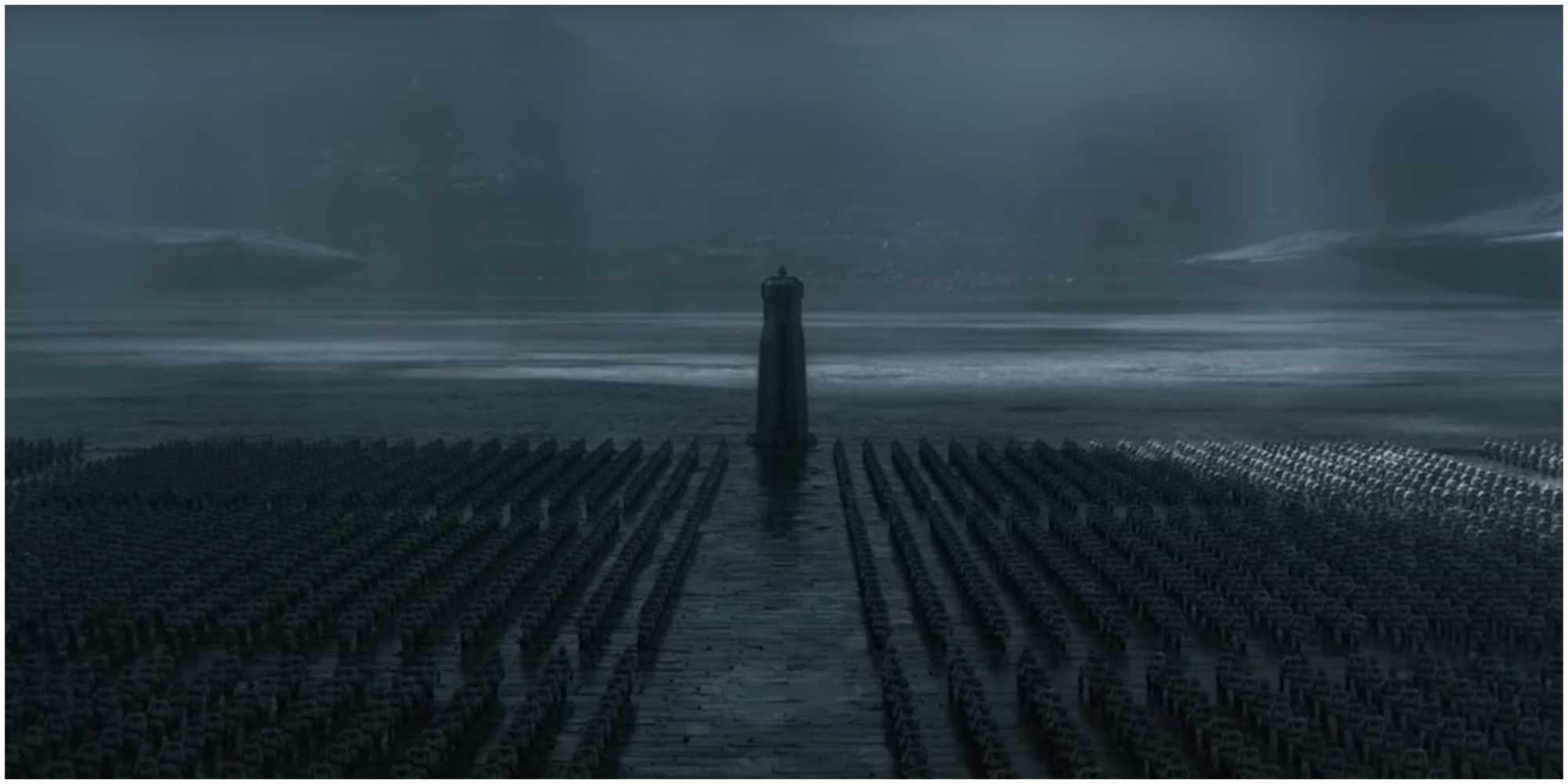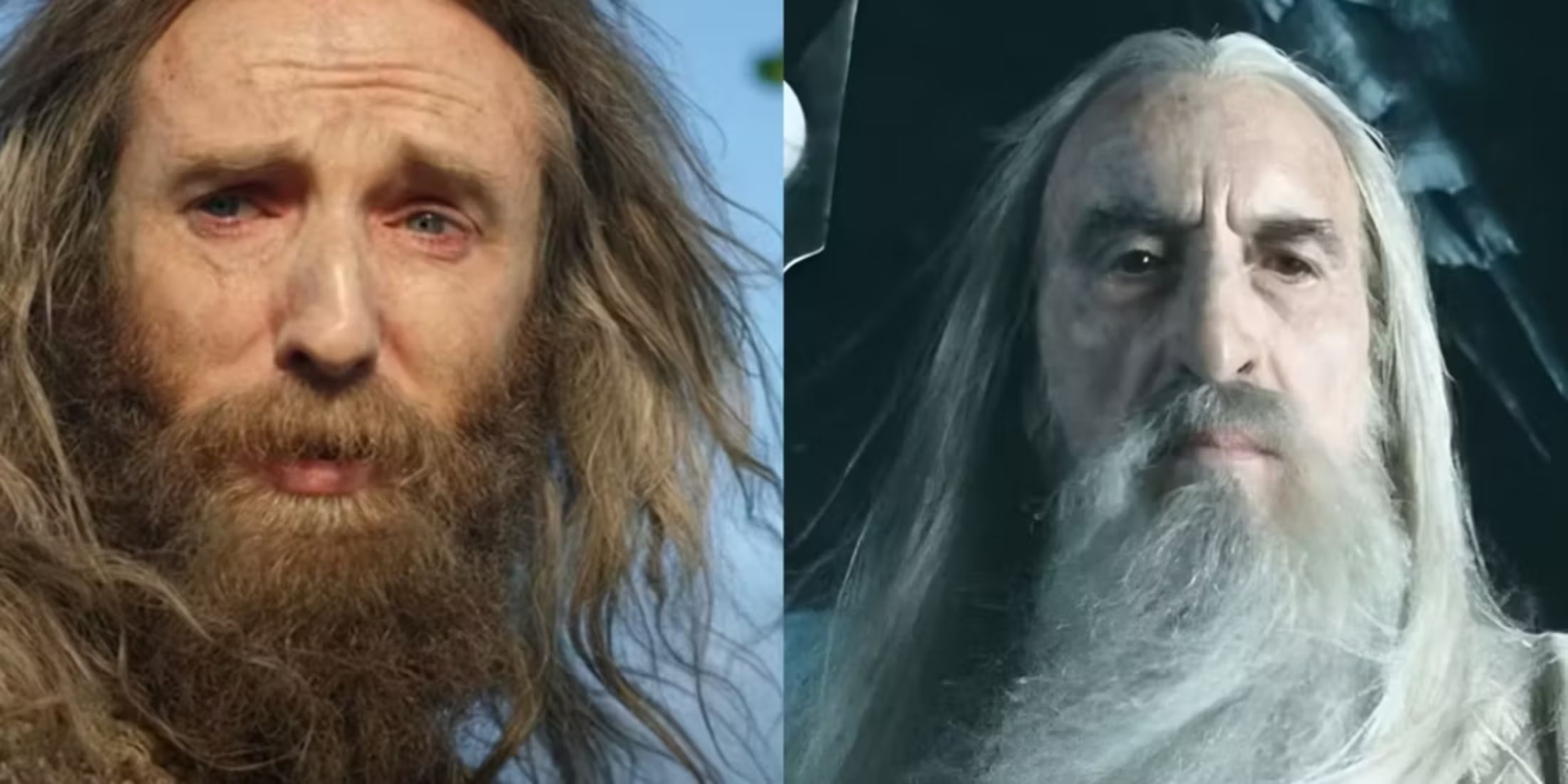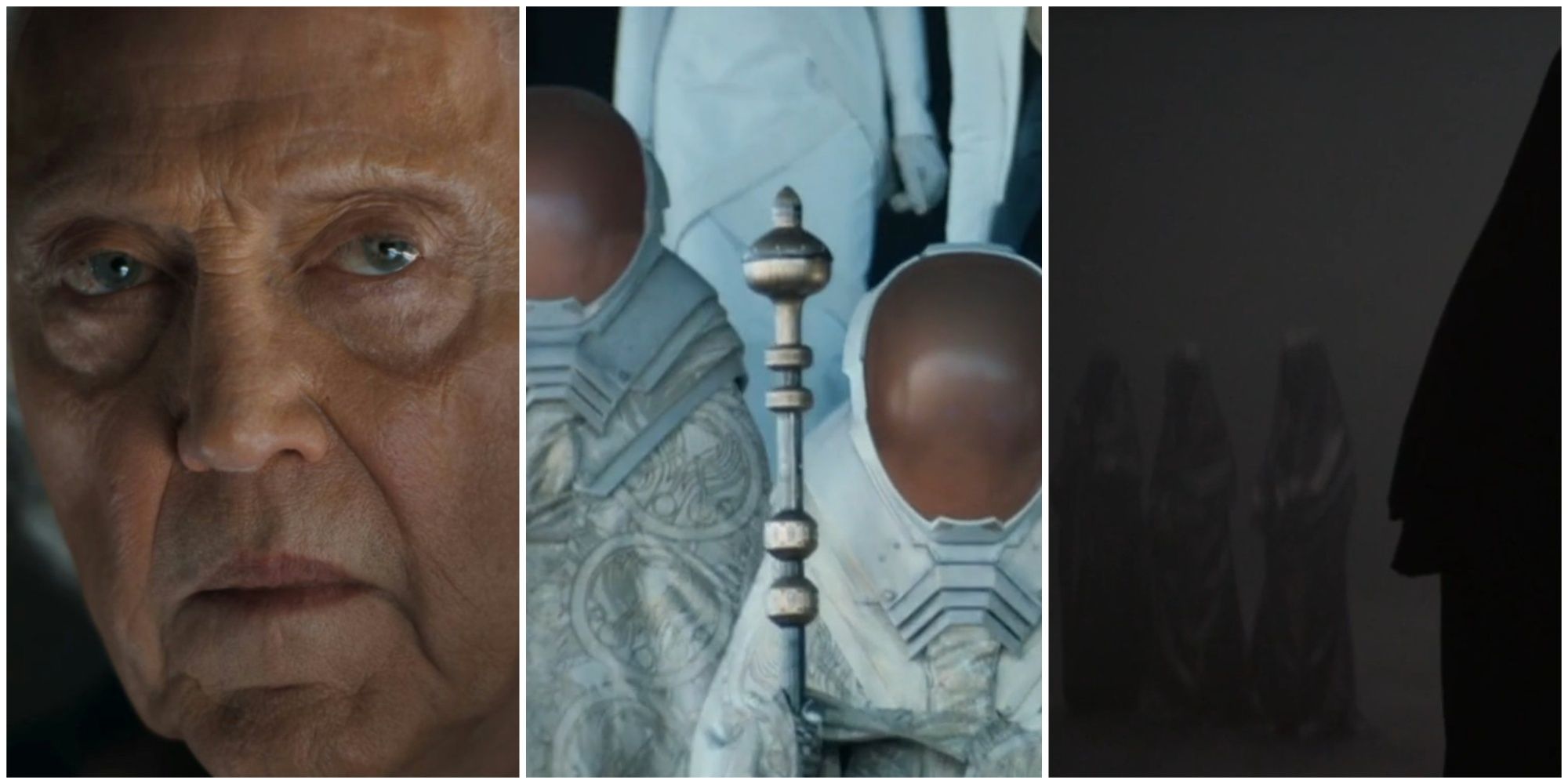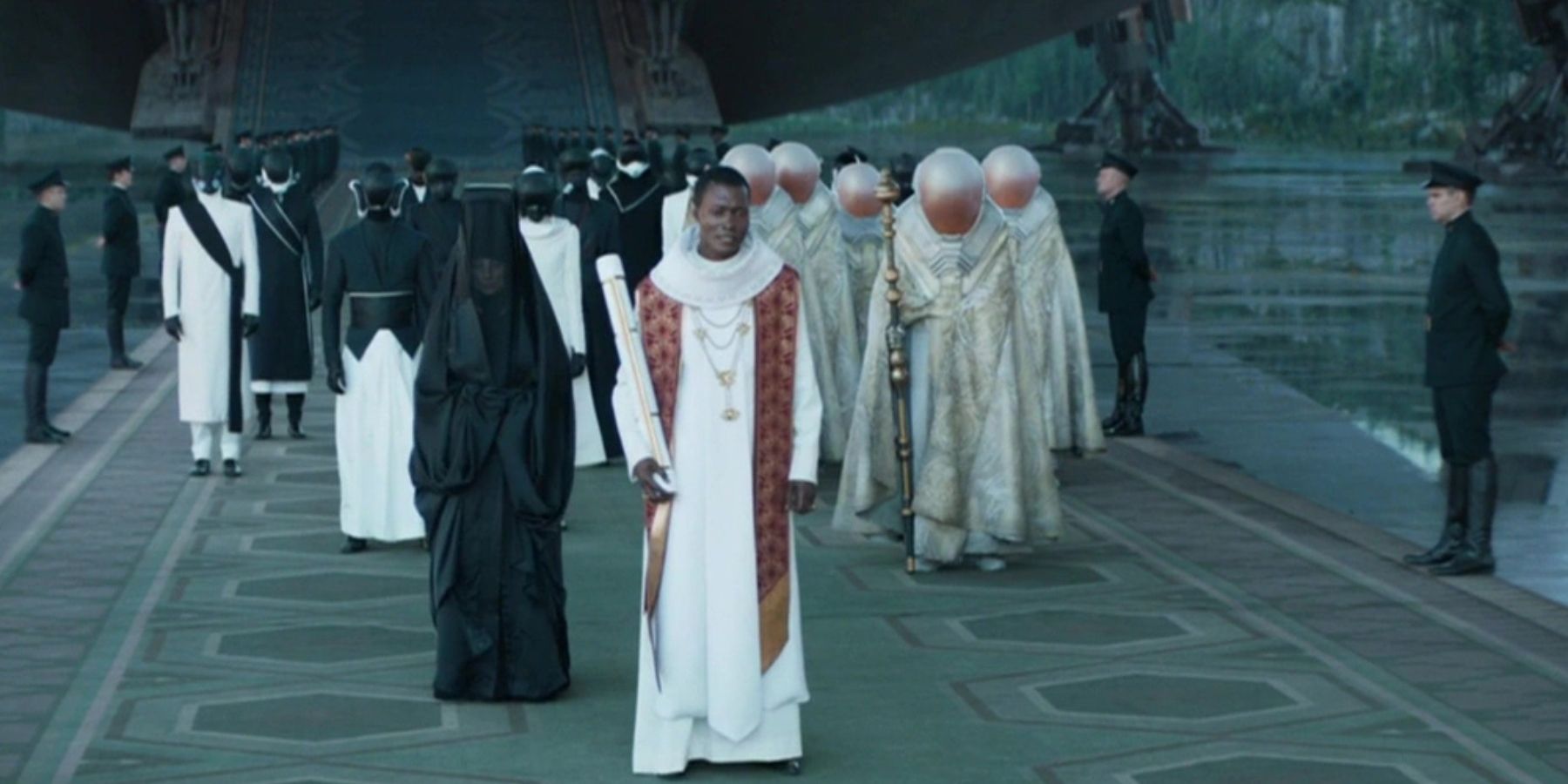Quick Links
In Frank Herbert's Dune, the political equilibrium of the Imperium is thrown into disarray when the jealous Emperor Shaddam Corrino IV, colludes with the evil Harkonnens to bring down House Atreides on Arrakis after giving them the planet in fief-complete. The Emperor plays the big game that involves substantial reputational risk, because he grows increasingly jealous of Duke Leto's growing influence in the Landsraad. Ultimately, his risk pays off in Dune: Part One. His blades, the Sardaukar, wipe out the Duke's household on Arrakis.
Paul Atreides and his mother, Lady Jessica, survive the attack but are at the mercy of the merciless desert of Arrakis, Dune, the Desert Planet. While the Imperial House has the lion's share of power and influence in the CHOAM, the chessboard of politics in Dune lore remains a delicate balance due to counterbalancing forces. Checks and balances exist in the system, which is why the Padishah Emperor has to trick Duke Leto out in an underhanded way.

Dune: Salusa Secundus, Explained
The Imperial Army Planet, Salusa Secundus is quite the opposite of the lush Atreides' planet, Caladan in the Dune universe.
The Corrino Imperium
The Imperial government, seated on Kaitain, is led by the hereditary ruler of House Corrino, who holds the title of the Padishah Emperor of the Known Universe. The Corrinos have ruled over the Imperium and the galactic-wide Empire for over 10 millennia. By the events of Frank Herbert's Dune, and Denis Villeneuve's onscreen adaptation Dune: Part One, the Padishah Emperor Shaddam Corrino IV sits on the Golden Lion Throne. Simply put, he is the hegemon.
The Landsraad, CHOAM, and the Spacing Guild are independent of one another, and yet codependent at the same time. The Great Houses that make up the Landsraad, the guild, and the CHOAM Company each vie for bigger clout in the corridors of power, while remaining in approximate balance with each other. Every faction that makes up the Corrino Imperium plays a vital role in the functioning of the government, and acts as a counterbalancing force to offset the higher degree of concentration of power in the Imperial House (Corrino). It is pertinent to mention that the Padishah Emperor imposes socio-economic and political control to maintain the integrity of the Faufreluches class system in Dune.
The Great Houses Of The Landsraad
The Padishah Emperor rules over the Landsraad, a body of all Great Houses that counterbalance the Emperor's authority. In Herbert's Dune, the Baron's nephew, Feyd-Rautha, is advised to keep mum after learning that the Emperor's soldier fanatics, disguised in Harkonnen livery, will infiltrate the Arrakeen Residency:
No hint of this must ever reach another Great House, else the Landsraad might unite against the Imperial House and there'd be chaos.
The Landsraad is built on formal relationships between the Great Houses, and governed by a tight inner circle known as the High Council. It serves as a dispute resolution body and, needless to say, is presided over by the Emperor. Houses Major and Minor are part of the Landsraad. The most notable of the former are Atreides, Harkonnen, and Corrino. House Fenring, House Ginaz, House Halleck, House Metulli, and House Moritani are the lesser-known Great Houses of the Landsraad. The Minor Houses aren't given planetary fiefdoms, but are part of the nobility in the feudal setup of Dune. The Major Houses have a bigger stake in the Landsraad, while the Minor Houses have a smaller one.
CHOAM And The Spacing Guild
The CHOAM organization enjoys a monopoly over trade and commerce. In other words, CHOAM controls the economic affairs of the Empire, while the Spacing Guild has a monopoly over interstellar travel in the feudal trade culture of Dune. They deal with everything from art, to technology, to the Spice. The Imperial House, the Landsraad, the Spacing Guild, and the Bene Gesserit order all have a stake in CHOAM.
Through the Landsraad, Houses Major have a stake in the CHOAM Company. Those Houses with a bigger stake bring home more profits than the rest. Wealth (and by extension power) is the reason why the competing Great Houses of the Landsraad vie for directorships in the company. Having an irrevocable CHOAM directorship also means holding more power in the Imperium. Feyd-Rautha in Herbert's Dune accepts that House Harkonnen would kill two birds with one stone by partaking in the Emperor's dirty work. They would eliminate their rivals and "bring House Harkonnen greater wealth than that of any other House in the Imperium." In Herbert's words:
CHOAM was the key to wealth, each noble House dipping from the company's coffers whatever it could under the power of the directorships. Those CHOAM directorships - they were the real evidence of political power in the Imperium, passing with the shifts of voting strength within the Landsraad as it balanced itself against the Emperor and his supporters.
The Emperor capitalizes on the Harkonnen-Atreides rivalry, while the greedy Baron joins forces with him for a bigger share in profits and an increase in voting strength at the CHOAM Company.
The Bene Gesserit
Amid the forces of the Imperium — the Landsraad, and CHOAM — the real power lies with the Bene Gesserit, a matriarchal Order that rules from the shadows. Reverend Mother Gaius Helen Mohiam says in Herbert's Dune that the political structure of the Imperium is analogous to an "unstable tripod" in that everything hangs in a delicate balance:
We've a three-point civilization: the Imperial Household balanced against the Federated Great Houses of the Landsraad, and between them, the Guild with its damnable monopoly on interstellar transport.
The Bene Gesserit have been manipulating bloodlines for generations to spawn the Kwisatz Haderach (a male Bene Gesserit with extraordinary prescience) through their breeding program. They operate under the guise of a religious order, but really perform the function of politics. They maintain records of genetic lines, and purposefully breed their ladies to members of noble Houses to "set up a dominant in some genetic trait." Lady Jessica and Paul Atreides are the products of the Bene Gesserit breeding program.
Helen Mohiam scoffs at the big names in Herbert's Dune, saying:
The Imperium, the CHOAM Company, all the Great Houses, they are but bits of flotsam in the path of the flood.
In other words, the Bene Gesserit hold perhaps the most power in the Dune universe — and they know it.

Dune
Based on the novel by Frank Herbert, Dune follows the story of Paul Atreides played by Timothée Chalamet, whose family take control of a planet that holds the key to faster than light travel, and certain mental powers. This futuristic fantasy world is rife with politics, religion, wars and betrayals, as empires and factions fight for control over the planet.

Dune: The Sardaukar, Explained
The Sardaukar are the military force that cracks a whip and kills at the Emperor's command, but what makes them fearsome in Dune?





